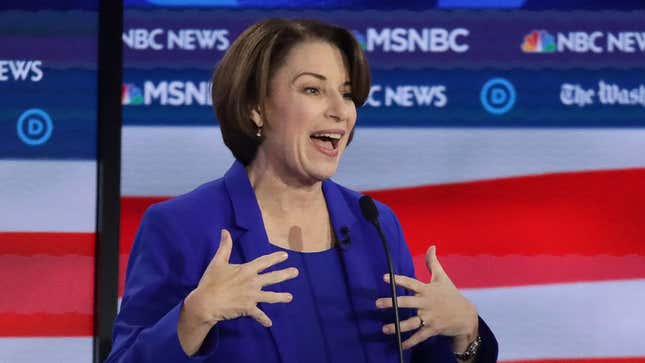The Failures of Pop Feminism
Politics

Senator Amy Klobuchar, a woman known for being quite abusive to her staff as well as her often misguided attempts at humor, has struggled, since she launched her campaign for the Democratic presidential nomination, to break out of the very large pack of candidates. Her lackluster performance to date is largely based on her lack of broad name recognition, unlike Joe Biden, and her milquetoast policy ideas, unlike Bernie Sanders and Elizabeth Warren, which have combined to doom her campaign. But lately, she has latched onto a different talking point, one embraced by Kirsten Gillibrand until she dropped out of the race: Klobuchar is a woman, and women quite simply are held to a higher standard than men.
In recent weeks, Klobuchar has pointedly noted the fact that her rival Pete Buttigieg, a man with little governing experience but a long list of largely meaningless superlatives on his resume, is ascendant in the polls. The fact that he’s even in the race points to a double standard, she said. “Could we be running with less experience than we had? I don’t think so,” she told the New York Times earlier in November. “I don’t think people would take us seriously.”
During Wednesday’s night Democratic primary debate, Klobuchar was asked to directly address that comment, and her response doubled down on her contention. “Women are held to a higher standard. Otherwise we could play a game called ‘Name Your Favorite Woman President,’ which we can’t do because it has all been men, including all vice presidents being men,” she said, adding, “And I think any working woman out there, any woman that’s at home, knows exactly what I mean. We have to work harder, and that’s a fact.”
-

-

-

-

-

-

-

-

-

-

-

-

-

-

-

-

-

-

-

-

-

-

-

-

-

-

-

-

-

-

-

-

-

-

-

-

-

-

-

-








































